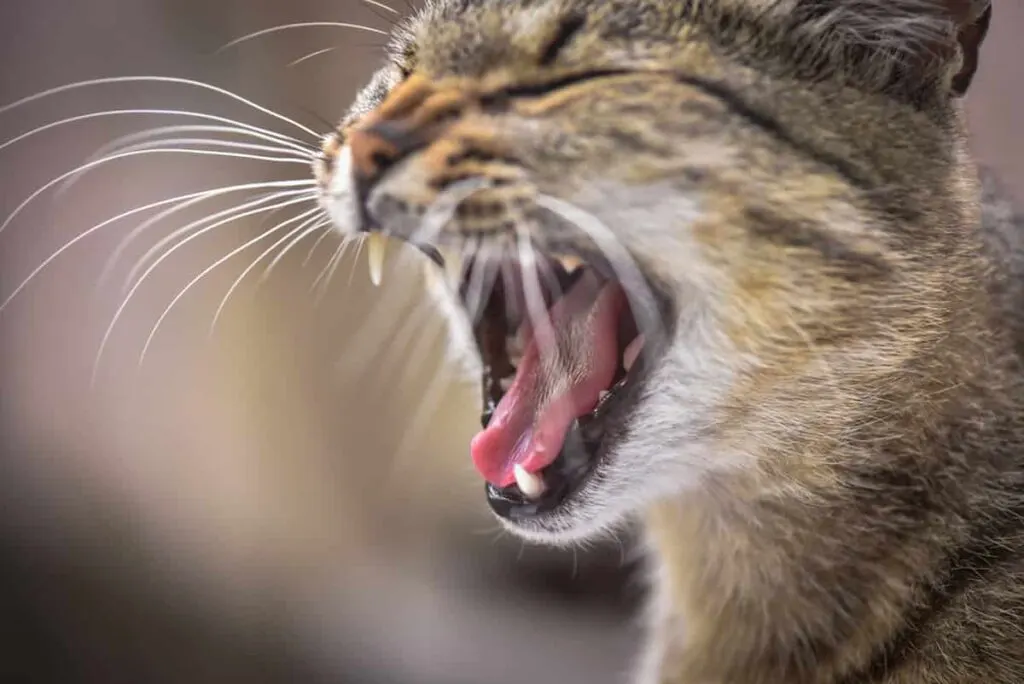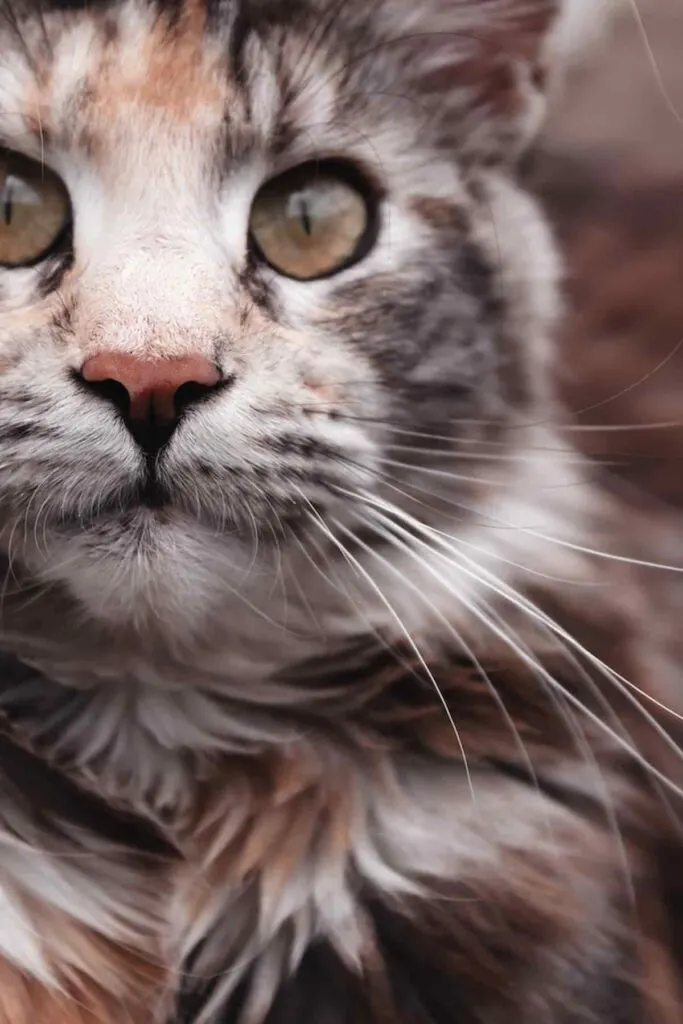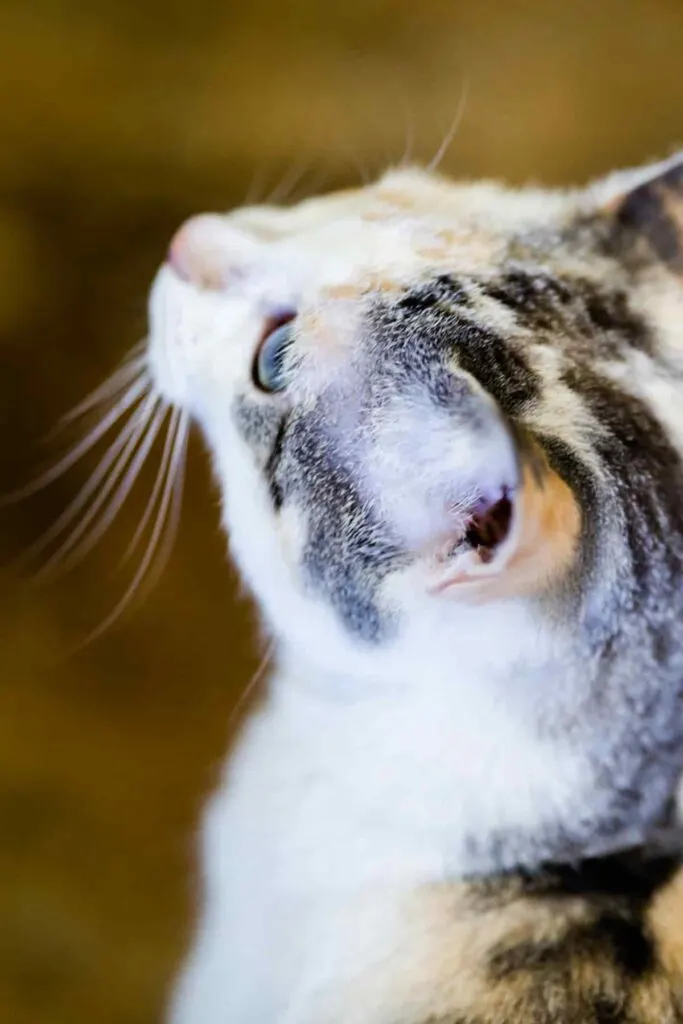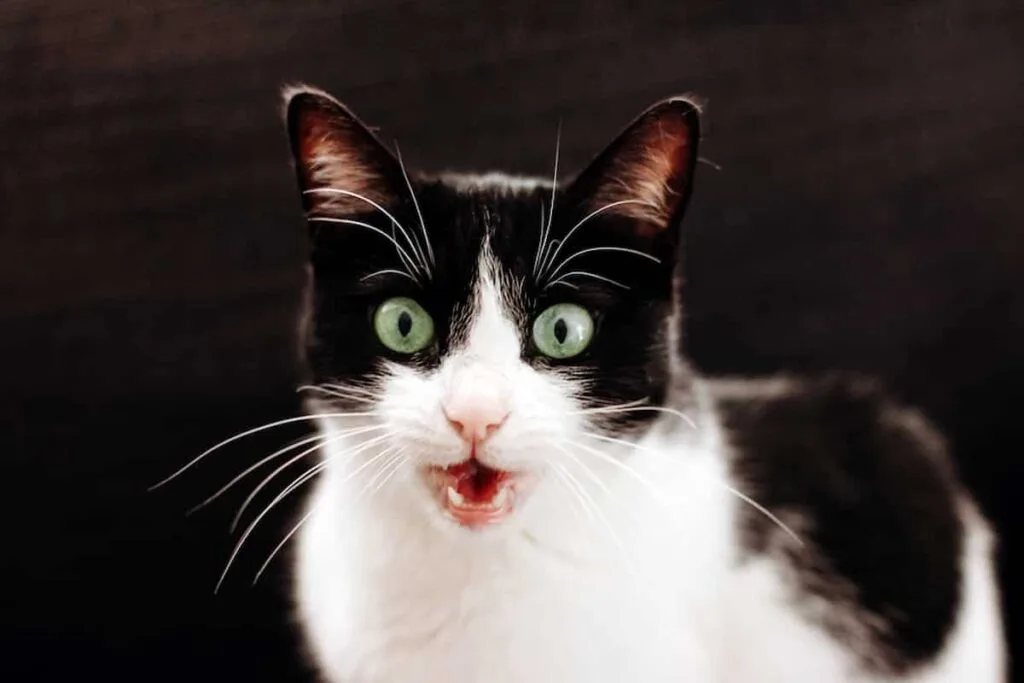One of the things you have to deal with when owning a cat is their meowing. Meowing is a form of communication among cats, so it’s important we pay attention to them when it occurs. Considering that tabby cats are the most popular type, you might wonder if they meow a lot.
Tabby cats can meow a lot, however, certain cat breeds meow more than others regardless of their coat pattern. Cats meow for a variety of reasons. Age, upbringing, desire for attention from the owner, and pain are common reasons tabby cats meow a lot.
In general, tabby cats are thought to be more affectionate and communicative than most. Since this is the most popular domestic cat breed, it’s important to understand what cat meowing means, and ways to address those issues.

What Does Tabby Cat Meowing Mean?
If you have a tabby cat, then their meowing can mean many things. Because most domestic tabby cats are American Shorthair, we’ll focus on this breed specifically.
Most of the time, it’s quite tricky to figure out what exactly is making a cat meow. It takes some troubleshooting on the owner’s part to figure out what’s going on and ways to rectify the issue. Whether your cat is tabby or not, as you gain more experience with your cat you’ll start to pick up on their tendencies.
A cat meowing can be easily broken down into 7 key areas. Below is a list of 7 reasons why your tabby cat may be meowing.
- The cat is young
- The cat is hungry
- The cat is in pain
- The litter box is not satisfactory
- The cat is bored
- The Cat Is Afraid Or Uncomfortable
- The Cat is suffering from FHS
In the case of a young cat, it should be expected to hear them meow quite a bit. This is a natural characteristic of young cats who use this to communicate with their mother. Since you’re caring for them, all that attention is directed toward the owner.
For the most part, young cats meow to signal that they are hungry. In general, young cats tend to eat much more food than adult cats. So in that instance, you’re tabby will need to be fed frequently.
When a tabby cat is young, it can sometimes be very fearful or uncomfortable. Even older cats who are introduced to new environments like the vet or a friend’s home may become very uncomfortable. In cases like this, you could expect to hear them howl for hours.
Whether a cat is young or old, one thing they do not tolerate much of is an unsatisfactory litter box. It’s not uncommon to see cats meow for hours on end because they feel they can’t use the litter box. Cats will try their best to hold it, and sometimes they’ll even go outside of the litter box in protest.

It’s important to remember that most American Shorthair tabby cats are very social. If the cat is not getting enough attention or playtime, they’ll become very bored. Because they have nothing else better to do, they’ll meow until they get your attention. Even some cats that get plenty of attention will continually meow because they don’t want to be alone.
There are certain types of worrisome meow noises you need to listen for with your cat. Excessive or loud meowing is almost always an indicator that the cat is in some sort of pain.
Cats don’t do a great job of showing what is causing their pain though. If the cat has a sore stomach, or something internal, it’s almost impossible to tell. However, cats who have stubbed their paws or fallen will show signs of limping or treating their body more gingerly.
Situations, where a cat has internal pain, mean you might need to take them to the vet to be looked at. Vets can also help identify if the cat suffers from an illness like feline hyperesthesia syndrome, has a urinary tract infection, or is dehydrated.
What Do Different Cat Meow Sounds Mean
There are different types of meow sounds that all cat breeds make. As an owner, it’s important to listen to the intensity and frequency of the meowing to determine if there’s an emergency or not. Here are a few types of meow sounds commonly heard from domestic cats.
Long deep meow
The long deep meow is the sound most cats make when they are in distress. This almost has a “MOOOWWWW” sound, often quite low in the register but loud in volume. Cats who do this have either hurt themselves or are genuinely afraid.
Sometimes cats make this noise when they’ve caught one of their play toys. Likewise, if a cat is having a hard time getting to a certain area of the home, or is closed off in the kennel it’ll make this noise to be left out.

A short and soft meow
Short soft meows are often heard after a cat has been scolded. Also, if a cat has already been through the long deep meowing phase for a while, it’ll often come back with short and soft meows. Think of it as a reminder that they still need your attention!
When a cat is introduced to a new home and left alone, it’s common to hear this sort of meowing.
Growling meow
This meow is best associated with a cat that is fed up, angry and wants to let the world know about it. Cats who growl when they meow also do this in aggression toward other pets or people they are not familiar with.
Fast repetition meow
In my experience with my tabby cat, I can say this meow is almost always tied to food. When a cat is super hungry and has not been fed in a while, it’ll make these quick repetitions noises. It’s very short and staccato-like, but very distinct from the other meowing noises you might hear a cat make.
Screeching meow
Screeching meow sounds from your tabby cat almost always indicate severe pain. Sometimes this is heard after an immediate fall from a high structure. This is also heard when a cat has something going on internally. An example of this is tummy pain or trouble going to the bathroom. This sound is so distinct that it’ll startle most owners.
How To Stop A Tabby Cat From Meowing
When a tabby cat, or any cat for that matter, goes on a meowing tangent, it can be annoying. Not only does that potentially signal that something is wrong, but it’s also a hassle. Thankfully there are many things you can do to help calm down your cat in just moments. Below is a list of proven strategies to help stop your cat from meowing too much.

Schedule Playtime For Your Tabby Cat
An active cat like a tabby is going to need its playtime scheduled. The reason is that these cats can become quite agitated if they are neglected on a consistent basis by their owners.
If you have a busy work schedule and only feed your cat when you see them, that’s not the best way to build a relationship with them. They will howl long into the night and early in the mornings because they desire more than just food. They want attention.
A simple playtime schedule can include 5 minutes in the morning and 10 – 15 minutes in the evening. Playtime can consist of food puzzles, tossing toys around the room, or simply letting your cat run around and explore.
Tabby cats especially have a lot of energy they need to release, so it’s very important they have an opportunity to do this. This tip alone can help you minimize their meowing greatly when it’s caused by boredom and lack of engagement with the owner.
Always Feed Your Cat On Time
A cat that does not eat enough throughout the day will meow a lot. Cats that go more than 4 hours without eating will be practically starving if they cant self-feed. With a busy schedule, it’s easy to forget to feed your cat at a consistent time of the day. This is especially true when your cat is on a wet food diet, and each plate needs to be manually prepared.
Ways to keep your cat happy are to provide them a wet meal in the morning and then kibble for them to eat throughout the day. This way, the cat can self-feed until you return later in the day. Ultimately, the cat still needs scheduled eating time.
By applying a schedule to your cats feeding time, you can condition them to expect meals at certain points of the day. Once a cat misses that mealtime, then, of course, it’ll start to meow loudly. It’s ‘s important that you set the standard and remain consistent with always feeding them on time.

Clean The Litter Box Regularly
In the case of tabby cats especially, no cat likes a dirty litter box. Some cats will refuse to use the litter box if the contents have become too piled up. Sometimes a cat will try to hold their bladder until the litter is cleaned. This puts them in a significant amount of discomfort, and they’ll end up meowing frantically. Not only is this painful for the cat, but it can lead to accidents outside of the litter box.
Generally, kittens should have their litter cleaned every 4 to 5 days. Kittens each have much more food than an adult, so it’s expected that they will use the litter box more frequently. Adult cats will use the litter less often, however, they produce more waste. Their litter should be cleaned every 3 to 4 days.
Meows related to litter box problems are usually the easiest to identify. Cats will usually circle the litter box or pat it to send a clear message. Cats also start to attempt to use the bathroom in random areas, which is also another sign.
Regularly Check Your Cat For Injuries
A social and energetic cat like a tabby cat will eventually get injured. As an owner, it’s important to immediately recognize this loud, screeching meow sound. It’s common for a cat to suffer a leg injury, get their coat tugged, or run into something.
In general, you should always check your cat for injuries, discoloration, patches in their coat, and more. Something as simple as limiting the space they can explore can cut down on how often a cat can get injured. As a cat ages, you’ll get to know their tendencies, which activities they enjoy doing, and which ones put them at the most risk.
Keep Aggressive Cats Separate
Cats who fight are going to do more than just meow. They’re going to hiss, growl, screech, and make all sorts of loud unpleasant noises. The easiest way to combat this is to simply keep aggressive cats separated from each other. It’s important to provide cats that don’t like each other their own space to explore. They should also have their own toys, food bowls, and personal time with the owner.
Allow Your Cat To Roam Freely
A tabby cat like the American Shorthair is known for their desire to roam and be free. These cats do not like to be locked away in rooms or the kennel.
Instead, these cats want to know what’s going on outside of those confined spaces. Likewise, they don’t like doors that are closed and will often run up to them and meow, hoping someone will open it. A really investigative cat will do this for hours if you let them.
Tabby cats like these who do not get exposure to areas of the home or the outdoors will often meow in disgust. Always give your cat time each day to roam freely in the home.
Avoid Scaring Your Cat
It’s never a good idea to scare a cat for any reason. Cats have a very good memory and will start to associate you with being the reason they are scared. This means the cat will start to meow simply from you entering the same room as them.
If the cat notices you picked up a certain object, changed the intensity of your voice or make a certain gesture, they’ll start to think that something bad will happen again. As a result, cats will start to meow almost immediately, and once it starts, it’s hard to stop.
There are of course certain actions we take that may scare our cats unintentionally. In that case,, be mindful of what went wrong and what went right. Remember, tabby cats are particularly intelligent, be sure to read more here.
Take Your Cat To The Vet
Occasionally there may be nothing you can do to help stop your cat from meowing. In the case of a medical emergency, the cat will need to pay a trip to the local vet to be checked out. Sometimes the meowing can be a reaction to pain. For example, cats who experience urinary blockage will meow frequently and pace around the room.
Keeping up with the vet can also help prevent future diseases and complications. Vets also do a fine job of assessing your cat’s overall diet, behavior, and more. With some help, they can help you reduce your cat’s meowing by helping you improve their overall lifestyle.

My name is James, and welcome to FAQCats!
Along with our team of cat owners, expert pet enthusiasts, and pet professionals, we aim to write engaging helpful, engaging content about cats. At FAQCats we strive to provide content that’s accurate and fun to read. Our team writes about everything related to cats; even the most complex of topics. Through extensive research and caring for our own fur-pals, we’re able to provide something cat owners worldwide will love. Have a look around, and leave us feedback anytime!

